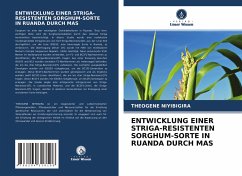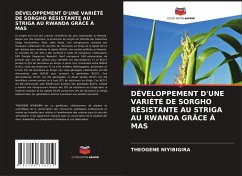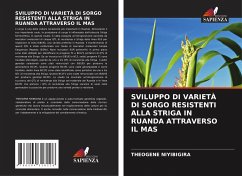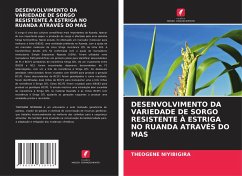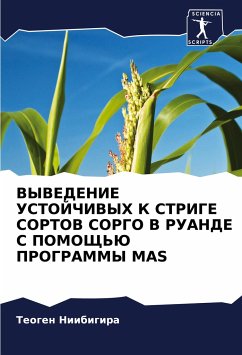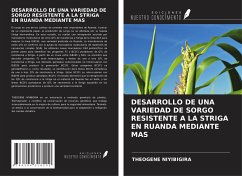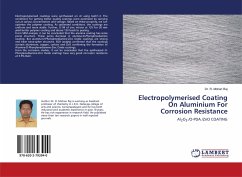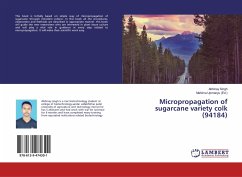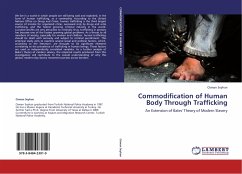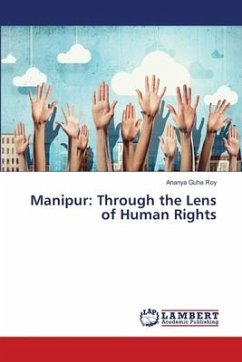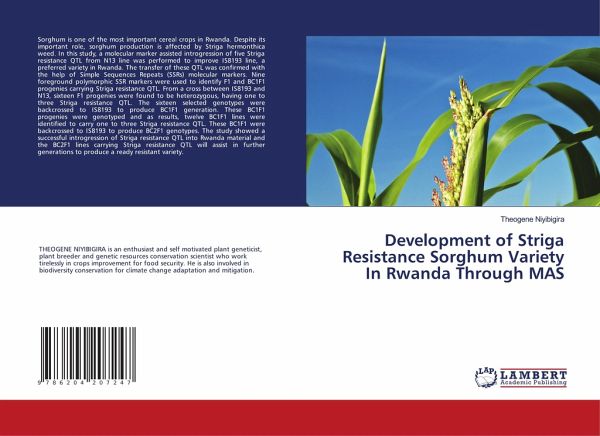
Development of Striga Resistance Sorghum Variety In Rwanda Through MAS
Versandkostenfrei!
Versandfertig in 6-10 Tagen
36,99 €
inkl. MwSt.

PAYBACK Punkte
18 °P sammeln!
Sorghum is one of the most important cereal crops in Rwanda. Despite its important role, sorghum production is affected by Striga hermonthica weed. In this study, a molecular marker assisted introgression of five Striga resistance QTL from N13 line was performed to improve IS8193 line, a preferred variety in Rwanda. The transfer of these QTL was confirmed with the help of Simple Sequences Repeats (SSRs) molecular markers. Nine foreground polymorphic SSR markers were used to identify F1 and BC1F1 progenies carrying Striga resistance QTL. From a cross between IS8193 and N13, sixteen F1 progenies...
Sorghum is one of the most important cereal crops in Rwanda. Despite its important role, sorghum production is affected by Striga hermonthica weed. In this study, a molecular marker assisted introgression of five Striga resistance QTL from N13 line was performed to improve IS8193 line, a preferred variety in Rwanda. The transfer of these QTL was confirmed with the help of Simple Sequences Repeats (SSRs) molecular markers. Nine foreground polymorphic SSR markers were used to identify F1 and BC1F1 progenies carrying Striga resistance QTL. From a cross between IS8193 and N13, sixteen F1 progenies were found to be heterozygous, having one to three Striga resistance QTL. The sixteen selected genotypes were backcrossed to IS8193 to produce BC1F1 generation. These BC1F1 progenies were genotyped and as results, twelve BC1F1 lines were identified to carry one to three Striga resistance QTL. These BC1F1 were backcrossed to IS8193 to produce BC2F1 genotypes. The study showed a successful introgression of Striga resistance QTL into Rwanda material and the BC2F1 lines carrying Striga resistance QTL will assist in further generations to produce a ready resistant variety.



